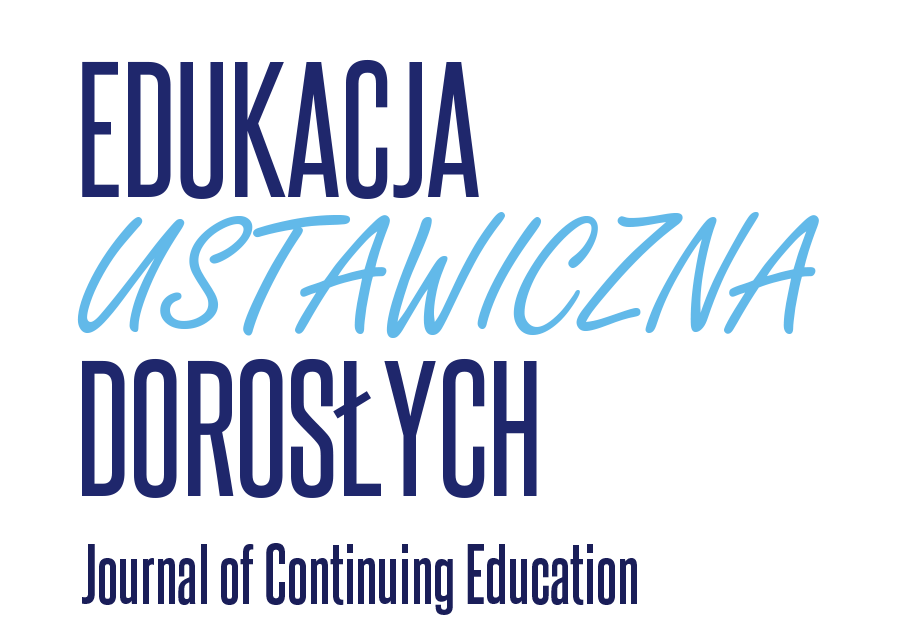Zertifikate im deutschen Weiterbildungssystem. Erfahrungen und Perspektiven ![]()
DOI: 10.34866/j036-nm36
Ekkehard Nuissl ORCID: 0000-0001-5847-8232
Ewa Przybylska ORCID: 0000-0001-8338-5484
Certyfikaty w niemieckim systemie kształcenia ustawicznego. Doświadczenia i perspektywy
Certificates in German lifelong learning system. Experiences and perspectives
Słowa kluczowe: certyfikaty, kwalifikacje, edukacja ustawiczna, Niemiecka Rama Kwalifikacji.
Key words: certificates, qualifications, lifelong learning, German Qualifications Framework.
Schlüsselwörter: Zertifikate, Qualifikationen, Weiterbildung, Deutscher Qualifikationsrahmen.
Streszczenie: Celem artykułu jest analiza aktualnych rozwiązań w dziedzinie certyfikowania, charakterystycznych dla niemieckiego systemu kształcenia ustawicznego. Tocząca się w tym kraju od kilku już dekad debata na temat certyfikowania kompetencji i umiejętności dotyczyła dotychczas głównie szkolnictwa, w tym szkolnictwa wyższego, oraz edukacji zawodowej, w mniejszym stopniu odnosiła się do obszaru edukacji ustawicznej, w którym przykładano większą wagę do otwartości i elastyczności w podejściu do uczących się osób niż systemu kwalifikacji. Współczesna tendencja do certyfikowania coraz większej liczby ofert realizowanych w ramach edukacji ustawicznej ożywiła zarówno społeczną dyskusję na temat znaczenia tego sektora w systemie edukacji, jak i debaty naukowe, w których akcent pada na konieczność ewaluacji standardów i wymogów certyfikacji pod kątem użyteczności stosowanych rozwiązań, także ich ewentualnych skutków ubocznych, jak choćby tworzenie barier dostępu do ofert.
Abstract: The aim of the article is to analyze current solutions in the field of certification, characteristic of German lifelong learning system. The debate on certification of competences and skills that has been going on in this country for several decades so far mainly concerned education, including higher education, and vocational education, to a lesser extent it referred to the area of lifelong education, in which greater importance has been attached to openness and flexibility in approach to learners rather than the qualifications system. The contemporary tendency to certify an increasing number of offers implemented as part of lifelong education has stimulated both social discussion about the importance of this sector in the education system as well as scientific debates, in which the emphasis is on the need to evaluate standards and certification requirements in terms of the usefulness of the solutions used, including their possible side effects, such as creating barriers to access those offers.


